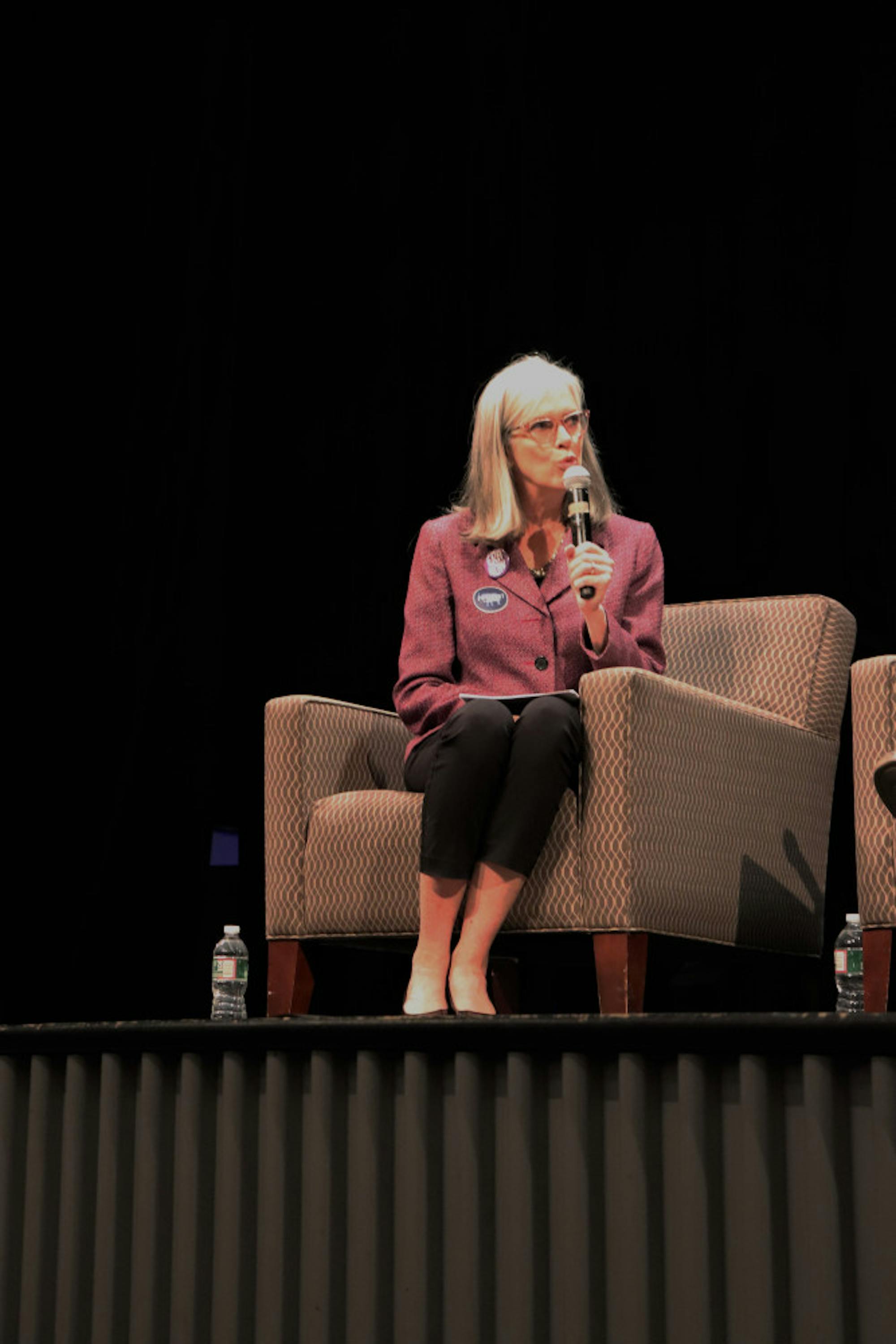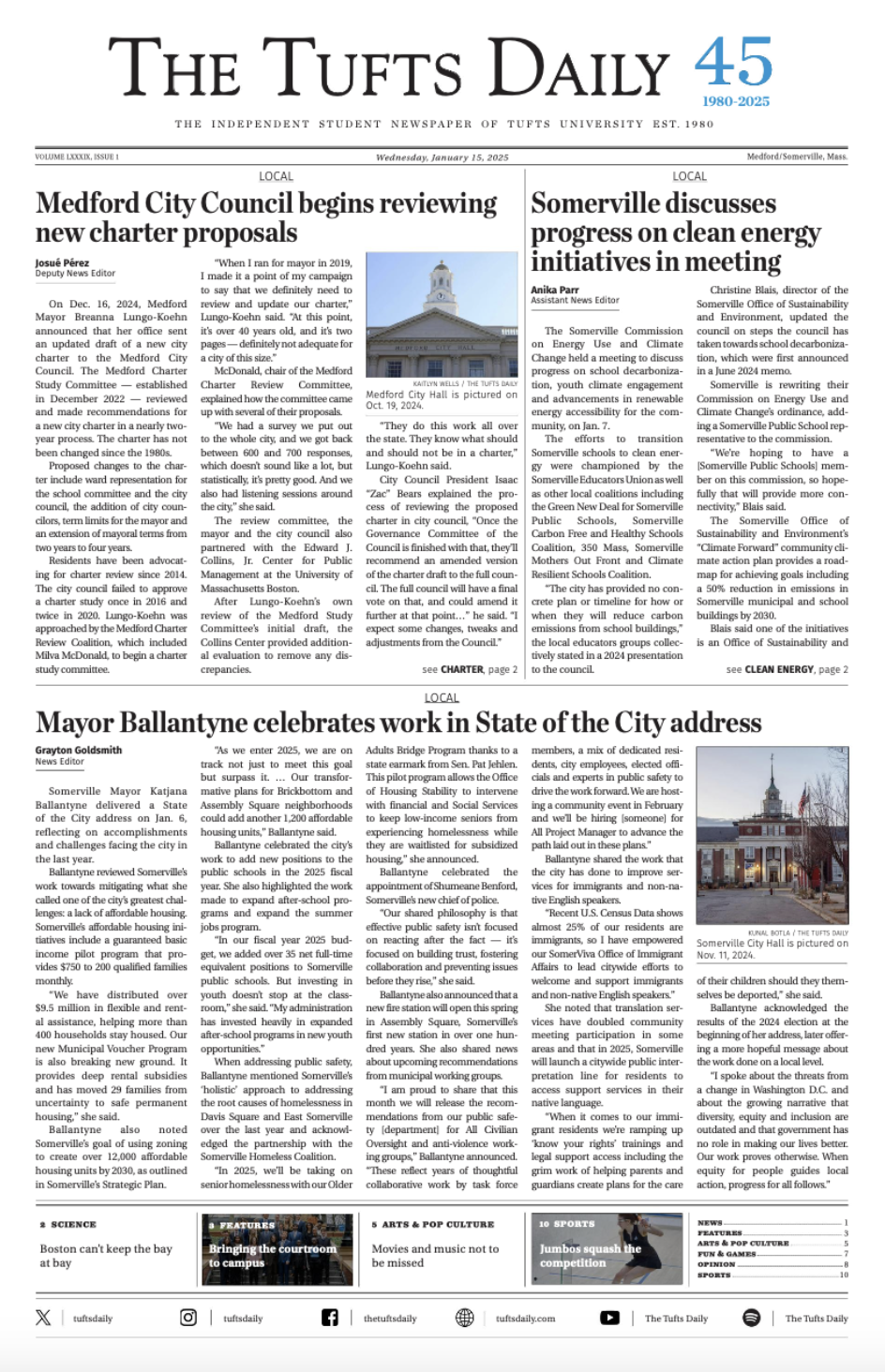U.S. Representative Katherine Clark (D-Mass.) discussed the upcoming census cycle and its policy implications with Tufts Census Action (TCA) in Cohen Auditorium last night, as part of a talk moderated by TCA's President and Founder Caroline Wolinsky and Community Outreach Director Anton Shenk, a sophomore.
TCA, which formed last semester, is a student group funded by the Tisch Fund for Civic Engagement which aims to increase participation in the upcoming census this year.
Lauren North, TCA's event planner, explained that Wolinsky, a sophomore, had served in Clark's congressional office as an intern, and managed to secure Clark's visit to speak about the census.
"[Clark is] obviously the congresswoman for this district, she's very passionate about families, immigrant rights, all the kinds of things wrapped up in the census," North, a sophomore, said. "So we thought that she would be the perfect person to come and talk about it."
Clark began by emphasizing why the census, and the data it yields, are so important to government functionality.
"It's the type of data that really influences every decision that we make in government," Clark said. "It's so critical that we include as many people as possible.”
Clark highlighted the prevalence of undercounting particular demographic groups that would benefit the most from accurate representation in census data.
"Unfortunately we're in what sometimes we call an 'immoral cycle' with the census," Clark said. "The people who we tend not to count — very low-income families, people of color, immigrant communities — also have the most to lose."
She noted the implications of the negative cycle she attributed to undercounting in the census.
"It's also tied to political power," Clark said. "We need to get an accurate count, especially from hard-to-reach communities, because ... political access is tied to the counting in the census."
Clark explained that while this census will be the first to offer an all-online option, which will allow more accurate tracking and data collection, it is distinct in the political climate surrounding it.
"The unfortunate difference is this very concerted effort to suppress the count for immigrant communities," Clark said. "That we know is an even further hurdle that we're going to have to overcome that was already a problem in past censuses."
Clark elaborated on her concerns about the upcoming census cycle, and emphasized that those employed by the U.S. Census Bureau to record the census can make a difference in addressing under-counting.
"The campaign to add the question to the census was highly effective if you are trying to suppress the count, especially in the immigrant community," Clark said. "That's why it's so important that we have census takers who are working on the census, who are multilingual, who can ... really emphasize that this is confidential data."
While discussing the effect of an accurate census count on the apportionment of congressional districts, Clark attributed Massachusetts' loss of one seat in Congress instead of two following the 2010 census to effective outreach in immigrant communities.
In a similar effort, each municipality in Massachusetts has formed a "complete count committee" as part of a statewide initiative to ensure an accurate count among traditionally under-counted groups in the upcoming census, according to Clark. She encouraged students at the event to join one, and to especially promote census participation by students who live off-campus.
Clark went on to explain that participating in the census can serve as a means of political advocacy through its influence on the appropriation of governmental funding.
"When you are counted in the census, it really is such a key to civil rights and economic justice," Clark said. "It seems like such a simple little survey to bring all that, to put all that at stake, but that really is how powerful it is."
She added that an undercount in the census could have severe negative political consequences for those already marginalized in terms of political influence.
"If we don't capture it, it really does imperil political representation, civil rights, access to voting rights," Clark said. "Working to help us get a good count is really work that strengthens the fundamentals of our democracy, which have been really tested lately."
Before closing the event, the TCA organizers announced their Census Day event to boost education about and participation in the 2020 census, which will be held on April 1.
Congresswoman Clark visits Tufts, discusses 2020 census

U.S. House Representative Katherine Clark addresses students at an event hosted by Tufts Census Action in Cohen Auditorium on Feb. 13.





